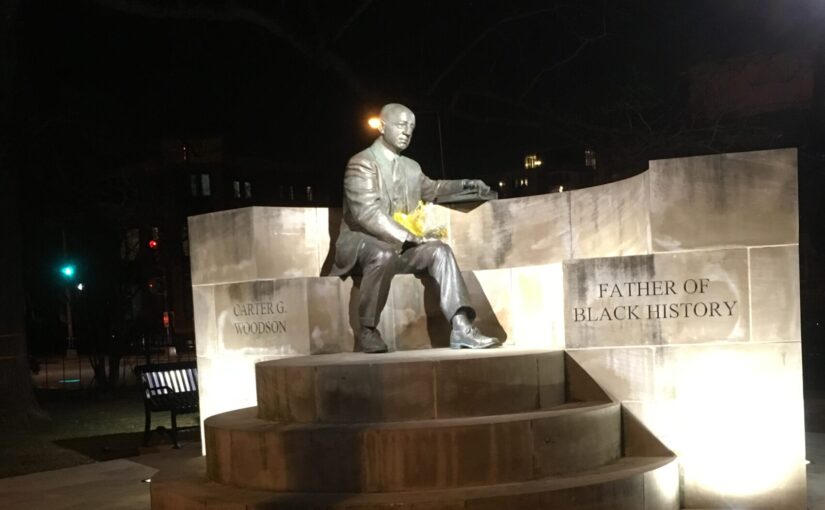It’s Black History Month, so I am continuing with the reprint of my series of posts regarding Shaw resident and Father of Black History, Carter G. Woodson and his book The Mis-Education of the Negro, published in 1933.
The first two paragraphs of chapter 9:
Some time ago when Congressman Oscar De Priest was distributing by thousands copies of the Constitution of the United States certain wiseacres were disposed to make fun of it. What purpose would such an act serve? These critics, however, probably did not know that thousands and thousands of Negro children in this country are not permitted to use school books in which are printed the Declaration of Independence or the Constitution of the United States. Thomas Jefferson and James Madison are mentioned in their history as figures in politics rather than as expounders of liberty and freedom. These youths are not permitted to learn that Jefferson believed that government should derive its power from the consent of the governed.
Not long ago a measure was introduced in a certain State Legislature to have the Constitution of the United States thus printed in school histories, but when the bill was about to pass it was killed by some one who made the point that it would never do to have Negroes study the Constitution of the United States. If the Negroes were granted the opportunity to peruse this document, they might learn to contend for the rights therein guaranteed; and no Negro teacher who gives attention to such matters of the government is tolerated in those backward districts. The teaching of government or the lack of such instruction, then, must be made to conform to the policy of “keeping the Negro in his place.”
After looking at disappointing test scores for African American males at local public and charter schools, in my worst thoughts, I was under the impression that some folks were unaware that it was legal to teach Blacks to read. And if the population cannot read, they cannot read the nation’s founding documents, nor appreciate them. And if a man can’t appreciate the Constitution, he is ignorant of his rights as an American. It appears the powers that were in the 1930s were set to keep Blacks ignorant of their rights by keeping the Constitution out of the schools.
Dr. Woodson noted how the dominate racial group, whites, had put hurdles in the path of Black lawyers. This as another way to deny the Black man his rights, by denying him his 6th Amendment right to council, of his own race.
Carter complains about the ‘educated’ classes so much it is a drinking game. And he continues to do so in this chapter.
The effect of such a one-sided system is decidedly bad. One does not realize it until he talks with men and women of these districts, who because of the denial of these privileges have lost interest in political matters. A book agent working in the plantation area of Mississippi tested the knowledge of Negroes of these matters by asking them questions about the local and State government. He discovered that they knew practically nothing in this sphere. It was difficult to find any who knew who was president of the United States. One meets teachers, physicians, and ministers who do not know the ordinary operations of courts, the functions of the counsel, jury or judge, unless such knowledge has come by the bitter experience of having been imposed upon by some tribunal of injustice. Some of the “educated” Negroes do not pay attention to such important matters as “the assessment of property and the collection of taxes, and they do not inform themselves as to how these things are worked out. An influential Negro in the South, then, is one who has nothing to do or say about politics and advises others to follow the same course.



